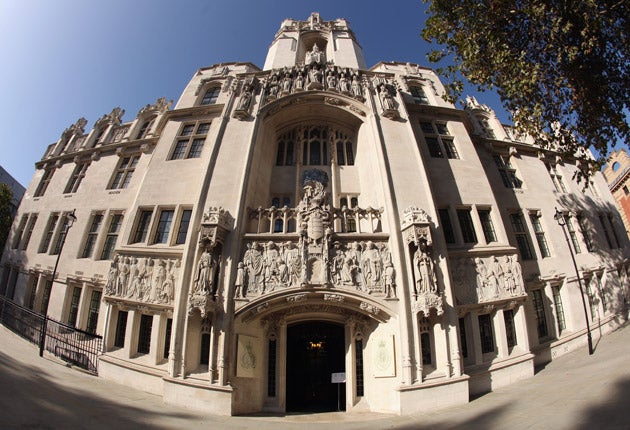Warning over Supreme Court independence

The independence of the highest court in the land cannot be properly guaranteed because of the way it is funded, its president has said.
Lord Phillips also warned there is a tendency on the part of the Ministry of Justice (MoJ) to try to gain the Supreme Court "as an outlying part of its empire".
The way in which the court is dependent each year on what it can persuade the ministry to give it "by way of contribution" was "not a satisfactory situation", he said.
The top judge also raised concerns over whether senior court staff owed their loyalty to him or to ministers.
It is "critical" for the court's independence that its chief executive, Jenny Rowe, "owes her primary loyalty to me and not to the minister", he said, adding that Ms Rowe backed his view.
But he warned of an impression that there are those within the ministry "who do not appreciate this".
The Supreme Court, which replaced the Law Lords, was set up in 2009 to emphasise the separation of powers between Parliament and judges.
But, in a speech at the launch of a research project on the politics of judicial independence at the University College London (UCL) constitution unit last night, Lord Phillips said that independence was threatened by the court's funding arrangements.
"My conclusion is that our present funding arrangements do not satisfactorily guarantee our institutional independence," he said.
"We are, in reality, dependent each year upon what we can persuade the Ministry of Justice of England and Wales to give us by way of 'contribution'.
"This is not a satisfactory situation for the Supreme Court of the United Kingdom. It is already leading to a tendency on the part of the Ministry of Justice to try to gain the Supreme Court as an outlying part of its empire."
He added that, when plans for the court were outlined in 2004, Lord Falconer, who promoted the Constitutional Reform Bill through the House of Lords, said staff of the court would be accountable to the chief executive and not to the minister, and that the chief executive would be principally answerable to the President of the Supreme Court.
Lord Phillips went on: "I consider that it is critical to our independence that the chief executive owes her primary loyalty to me and not to the minister.
"I know that Jenny Rowe shares my view.
"My impression is that there are those within the Ministry who do not appreciate this. They treat it as axiomatic that civil servants' duties are owed to ministers."
The MoJ is facing large cuts to its budget under the Government's spending review and is closing dozens of courts around England and Wales.
Last year, Ms Rowe warned that cuts of 40% or more would leave the Supreme Court unable to take on any cases as more than 60% of its expenditure is fixed.
Today, an MoJ spokesman said: "The Government is fully committed to the principle of an independent judiciary.
"As with all public services, the Supreme Court cannot be immune from the need to deliver efficiencies.
"In presenting the Supreme Court's bid for funding to the Treasury, the Lord Chancellor of course takes into account the views of the court and the potential impact on its business plan."
Justice Secretary Ken Clarke denied any threat to the court's independence and insisted he could not give it a blank cheque at a time when he was slashing budgets in other services such as prisons.
"He can order me through his court to do whatever he likes to obey the law; he can't tell me how much he wants to spend and be free of the cuts," he told the BBC Radio 4 Today programme.
"Inevitably he is going to be subject to the same public expenditure negotiations as everybody else.
"The independence of the court is absolutely secure but it doesn't extend to telling me how much public money they are going to spend without question.
"And his chief executive is a civil servant. That does not compromise his judicial independence at all, I am afraid, in my opinion."
He went on: "His chief executive is a very nice and capable woman, is not a lawyer. She does not lay down the law, she runs the administration of the court.
"She is the chief executive accountable to him but, just like the chief executive of a quango, she is also part of the Government."
Mr Clarke dismissed the complaints as a "storm in a teacup" but said he had great respect for Lord Phillips' legal judgments.
Join our commenting forum
Join thought-provoking conversations, follow other Independent readers and see their replies
Comments
Bookmark popover
Removed from bookmarks